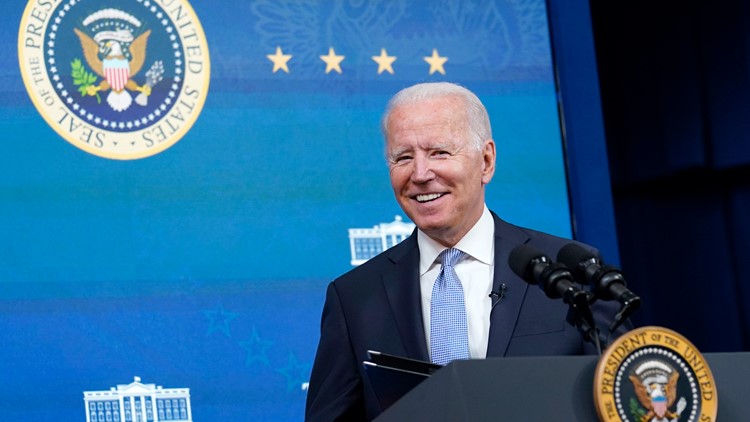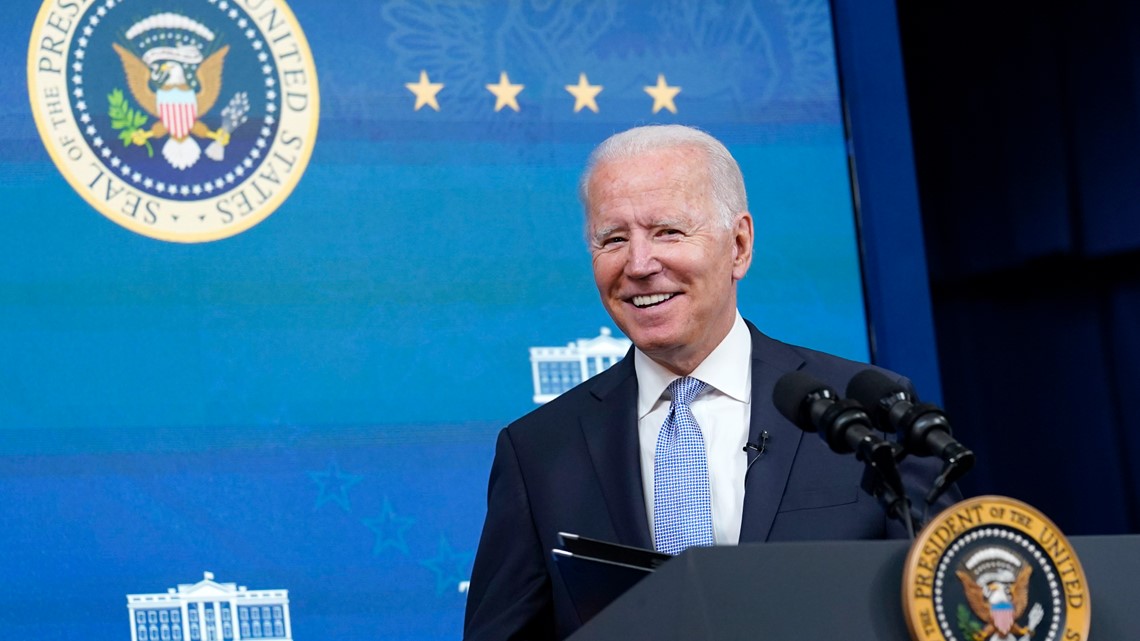
The grants will be targeted at supporting local infrastructure, job training programs and developing new industries.
WASHINGTON — President Joe Biden’s administration is beginning to make $3 billion in economic development grants available to communities — a tenfold increase in the program paid for by this year’s COVID-19 relief bill.
Commerce Secretary Gina Raimondo said her agency on Thursday will begin accepting applications for the competitive grants, which officials hope will create hundreds of thousands of jobs and help struggling cities and towns make long-term investments to drive development for years to come.
“This is about real help for communities across the country as they rebuild,” Raimondo said Wednesday in an interview with The Associated Press. “It’s about longer-term investments to help communities build themselves back from the bottom up in the ways that work best for them.”
The grants will be targeted at supporting local infrastructure, job training programs and developing new industries. Recipients will be selected on the basis of the anticipated return on investment to taxpayers. Raimondo was set to appear at Thursday’s White House press briefing to promote the new program.
“These are taxpayer dollars we are investing in communities, so we want to help them get recovery right,” said Raimondo. “These investments can help ensure they can rebuild more sustainably and more equitably in the ways that work best for them.”
The administration hopes that the competitive nature of the program will also coax private businesses and philanthropies to focus on rehabilitating their communities by making their own development commitments. There will be $1 billion available in a competitive process for 20 to 30 regions to spend on projects that would rebuild their economies, as well as $750 million in grants targeted for travel, tourism and outdoor recreation.
Fully 10% of the total will be earmarked for coal communities, which have struggled for decades amid the nation’s shift away from fossil fuels and are set to bear the economic brunt of the Biden administration’s even more aggressive efforts to move toward clean energy technologies.
“This is not hypothetical,” Raimondo said. “This is about real good-paying jobs today and investments needed to keep them coming.”













































